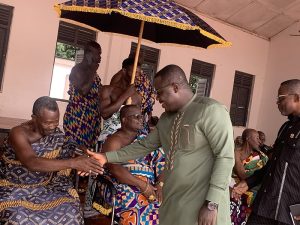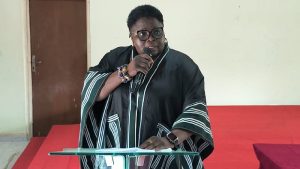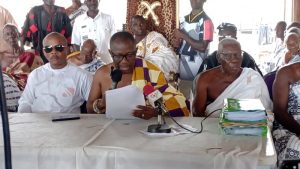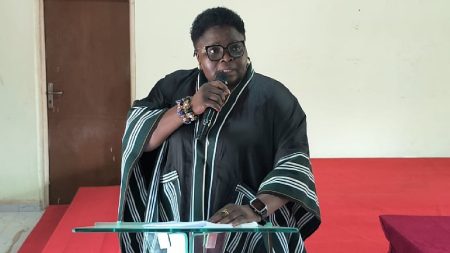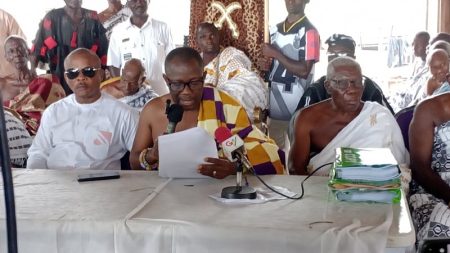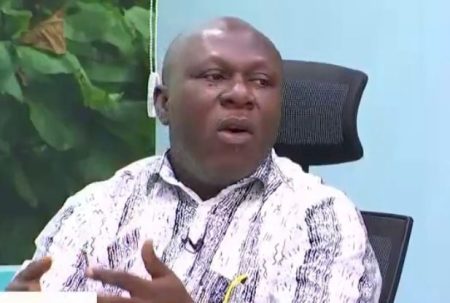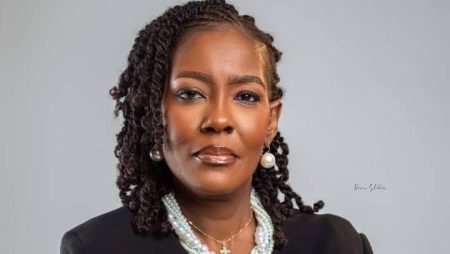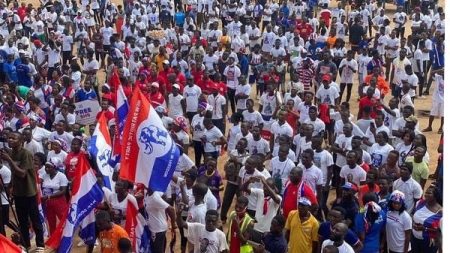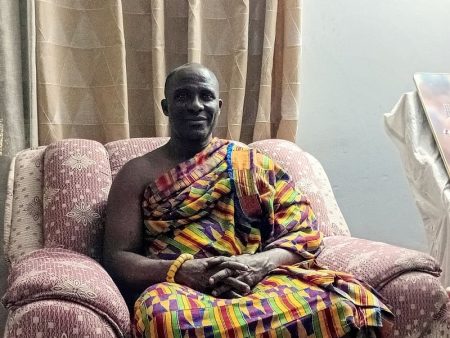The arrest and subsequent bail conditions imposed on Paul Adom-Otchere, the immediate past Board Chairman of the Ghana Airport Company Limited (GACL), have sparked controversy and accusations of unfair treatment by the Office of the Special Prosecutor (OSP). Adom-Otchere, a prominent broadcaster, was detained along with two other officials as part of a corruption investigation into a revenue assurance contract awarded by the GACL. The OSP’s demand that Adom-Otchere provide two landed properties registered in his name as a condition for bail has been met with sharp criticism from his legal team, who argue that the terms are unreasonable, unprecedented, and designed to deliberately detain him.
The core of the contention lies in the perceived impracticality and discriminatory nature of the bail conditions. Adom-Otchere’s lawyer, Nicholas Lenin Anane Agyei, argues that requiring landed properties registered in the accused’s name effectively bars individuals without such assets from accessing bail, thereby discriminating against the poor. He emphasizes that during the profiling process, Adom-Otchere explicitly stated that he did not own any landed property, making the OSP’s demand all the more unreasonable and akin to “setting the dog a bandage so that you can hang it.” The lawyer contends that such a condition essentially predetermines the outcome, effectively ensuring continued detention.
The legal team views the OSP’s actions as a calculated attempt to punish Adom-Otchere for his frequent public criticisms of the office. They suggest that the bail conditions are motivated by personal vendetta rather than a genuine pursuit of justice. This perception of targeted persecution further fuels the controversy and raises questions about the impartiality and objectivity of the OSP’s actions. The lawyer hints at the possibility of seeking legal redress to vary the bail conditions, highlighting the team’s determination to challenge what they perceive as an injustice.
The controversy surrounding Adom-Otchere’s bail conditions raises broader concerns about the administration of justice in Ghana. The requirement of landed properties as a condition for bail has the potential to disproportionately affect individuals from lower socio-economic backgrounds, effectively creating a two-tiered system where access to justice is predicated on wealth. This raises fundamental questions about fairness and equality within the legal system. It reinforces the perception that the justice system is biased against those without substantial financial resources, creating a situation where individuals are penalized for their economic circumstances rather than the merits of their case.
The OSP’s actions also raise concerns about the potential abuse of power. Critics argue that the imposition of such stringent bail conditions, especially in cases where the accused has publicly criticized the OSP, creates a chilling effect on freedom of expression and dissent. The fear of reprisal through the manipulation of legal processes could discourage individuals from exercising their right to criticize public institutions, thus undermining democratic principles. This potential for abuse underscores the importance of checks and balances to ensure that institutions like the OSP operate within the bounds of the law and do not utilize their powers for personal or political agendas.
This incident underscores the need for a comprehensive review of bail conditions in Ghana. A more equitable and just system would consider factors such as the severity of the alleged offense, the risk of flight, and the accused’s ties to the community, rather than relying solely on financial capacity. Such a reform would ensure that access to justice is not determined by wealth but is available to all citizens, regardless of their economic standing. This would promote a fairer and more equitable legal system that upholds the principles of justice and equality for all. The current controversy surrounding Adom-Otchere’s bail serves as a stark reminder of the need for these crucial reforms.


